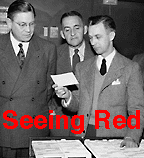

As for the fired professors, they did not go quietly. Phillips and Butterworth set off on lecture tours. Gundlach tried to sue the University for reinstatement, but couldn't get an attorney to take his case. Professionally, the trio soon found that they were persona non grata.
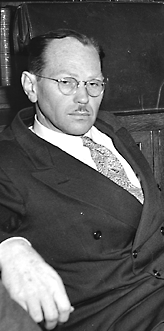
In 1949, Gundlach was convicted of contempt of the legislative committee, fined $250 and spent 30 days in jail. Though he sought and received endorsements of his work from two professional organizations, he found it didn't help him get a job. Even when a friend asked him to substitute teach a summer school class at Columbia University's Teachers College for one week, that university refused to hire him. With the academy closed to him, Gundlach got additional training and worked as a clinical psychologist for the rest of his career. But he never forgave the University. In 1962, when Charles Gates' history of the UW was published, Gundlach wrote the author a six-page letter disputing his treatment of the Canwell affair. He eventually retired to London and died in 1978.
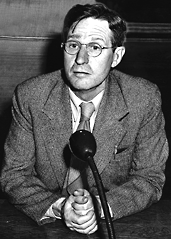
Phillips was 56 when the hearings took place--too old to easily start a new career and too young to retire. After being fired in 1949, he occasionally was allowed to guest lecture but he never had another job at any university. Later he became a laborer and retired to San Francisco, where he died in 1978.
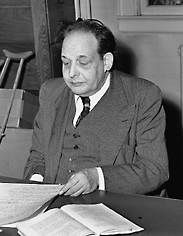
Butterworth's case was worse. In a specialized area like Old English, there is no work outside academia, and Butterworth seemed unsuited for other kinds of labor. After he was fired, he could not find any academic position even though he wrote letters to all 2,000 members of the Modern Language Association. He eventually went on public assistance. Described as a "broken man" who haunted Seattle's Blue Moon Tavern in the '50s, he died in 1970.
Eby Ethel and Jacobs continued to teach at the University until their retirements. Sanders reports that Jacobs refused to sign anything even remotely political for the rest of his career. He became ill and retired in 1971, dying shortly thereafter. Eby and Ethel both talked about social ostracism in the years following the hearings and about being kept at the low end of the pay scale for their ranks. Eby retired in 1968 and died in 1994. Ethel retired in 1969, but his life ended tragically. In 1980, he shot his wife, her sister and brother-in-law to death before turning the gun on himself.
Rader used the period after the hearings to compile evidence to clear his name. Though the prosecutor's office filed a perjury charge against his accuser, there was resistance at every turn, and finally the New York court refused to extradite the witness to Washington to stand trial. The Seattle Times then took up the professor's cause, and reporter Ed Guthman, '44, won a Pulitzer Prize in 1949 for the series of articles that proved Rader's innocence. Rader continued to teach at the UW, but it was 20 years before he was able to write about his experience in a memoir he called False Witness.
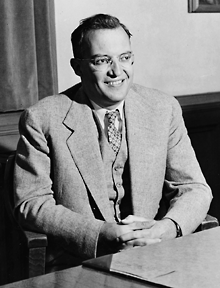
Allen did some lectures after the firings and was quoted in the New York papers, saying the University had fired "three Communists." Gundlach filed a libel suit against the papers and against Allen, saying it had never been proved that he was a Communist and that, indeed, he wasn't. The papers agreed to print a retraction and correction.
Allen left the UW in 1951 to become chair of the Psychological Strategy Board, established that year by President Truman to make the country's psychological warfare program more effective. Truman regarded the board as the nation's top planning agency in the Cold War. In 1952 he became the first chancellor at UCLA. He left that institution in 1959, serving in U.S. public health programs in Asia and South America. He retired to Virginia in 1967 and died in 1986.
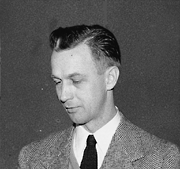
Canwell ran for re-election in 1948 on the basis of his anti-Communist campaign--and lost. He later ran the American Intelligence Service in Spokane, where--according to Rader--he kept files on hundreds of people alleged to have links with Communism. He also published a newsletter called The Vigilante. Today he still lives in the Spokane area and expresses no regrets for his activities in 1948.
The Apology: "A Dark Day in Our History" Says UW
President
Red Alert: Lectures, Exhibits and a Play
about the Canwell Hearing
Reader Reaction to "Seeing Red": Was It "Superb" Reporting or "Trash"?
Online Primary Sources of the Canwell Committee Hearings